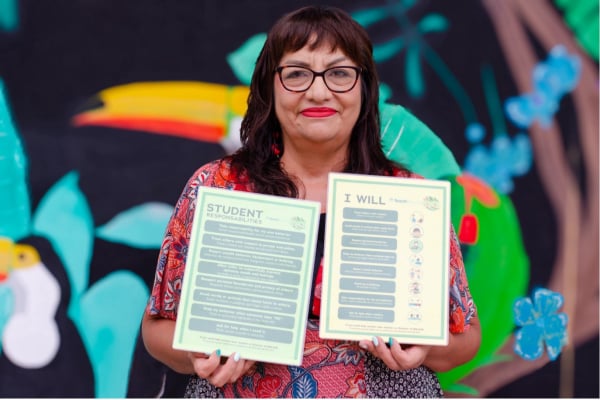TeachBeyond Safeguarding
We commit to promoting and prioritising the safety and wellbeing of children and vulnerable adults
Seeking the restoration that only the gospel can bring, we strive to reflect and glorify Jesus in all we do, upholding each child’s God-given right to dignity and respect. TeachBeyond is deeply committed to safeguarding, rooted in biblical truth and guided by the values of humility, excellence, love, and partnership. God calls His people to protect children and vulnerable adults, who face a greater risk of harm and require intentional care and support.
The objectives of TeachBeyond’s safeguarding programme are to:
- Prioritize and promote the safety and wellbeing of children and vulnerable adults.
- Ensure that TeachBeyond workers consistently model healthy, respectful, and nurturing relationships with children and vulnerable adults.
Safeguarding is a term to denote measures to protect the health, well-being and human rights of individuals, which aims to allow people — especially children and vulnerable adults — to live free from abuse. It is about people and organisations working together to prevent and reduce the risks, occurrences, and impact of harm.
With this in mind, the TeachBeyond Safeguarding Programme rests upon four foundational principles: regard, responsibility, response, and requirement.

REGARD

RESPONSIBILITY

RESPONSE

REQUIREMENTS
Do you have a safeguarding concern?
If you would like to raise a safeguarding concern—whether current or historical, and whether related to TeachBeyond or JanzTeam—we welcome you to contact our safeguarding team. We will listen carefully and take every concern seriously.
Our commitment is to respond with compassion, confidentiality, and professionalism guided by trauma-informed principles to ensure that you are heard and supported.
Safeguarding concerns could include:
- Concerns for the safety and well-being of a child. For example:
- Disclosures of harm from a child.
- A child displaying concerning behavior(s) or other possible indicators of harm.
- Concerns that a child has been harmed, whether by an adult or another child.
- Inappropriate relationships developing between an adult and a child.
- Concerns that TeachBeyond Safeguarding Policy or Code of Conduct has been breached.
- Concerns regarding unsafe protocols or practices at TeachBeyond.
- Historical reports of past harm.
* TeachBeyond also recognizes the importance of safeguarding vulnerable adults, not just children. To uphold this commitment, TeachBeyond applies the same safeguarding principles and processes to respond to harm to vulnerable adults. A vulnerable adult is a person who is 18 years of age or over, who has the functional, mental, or physical inability to care for themselves. It can also refer to someone who is unable to protect themselves against harm or exploitation.






